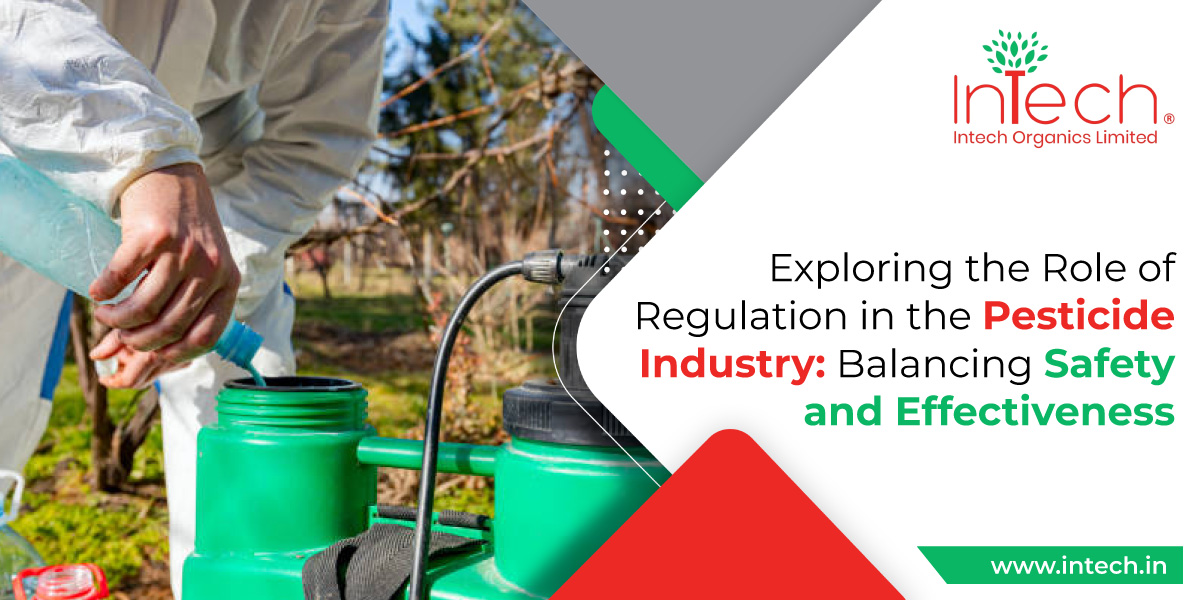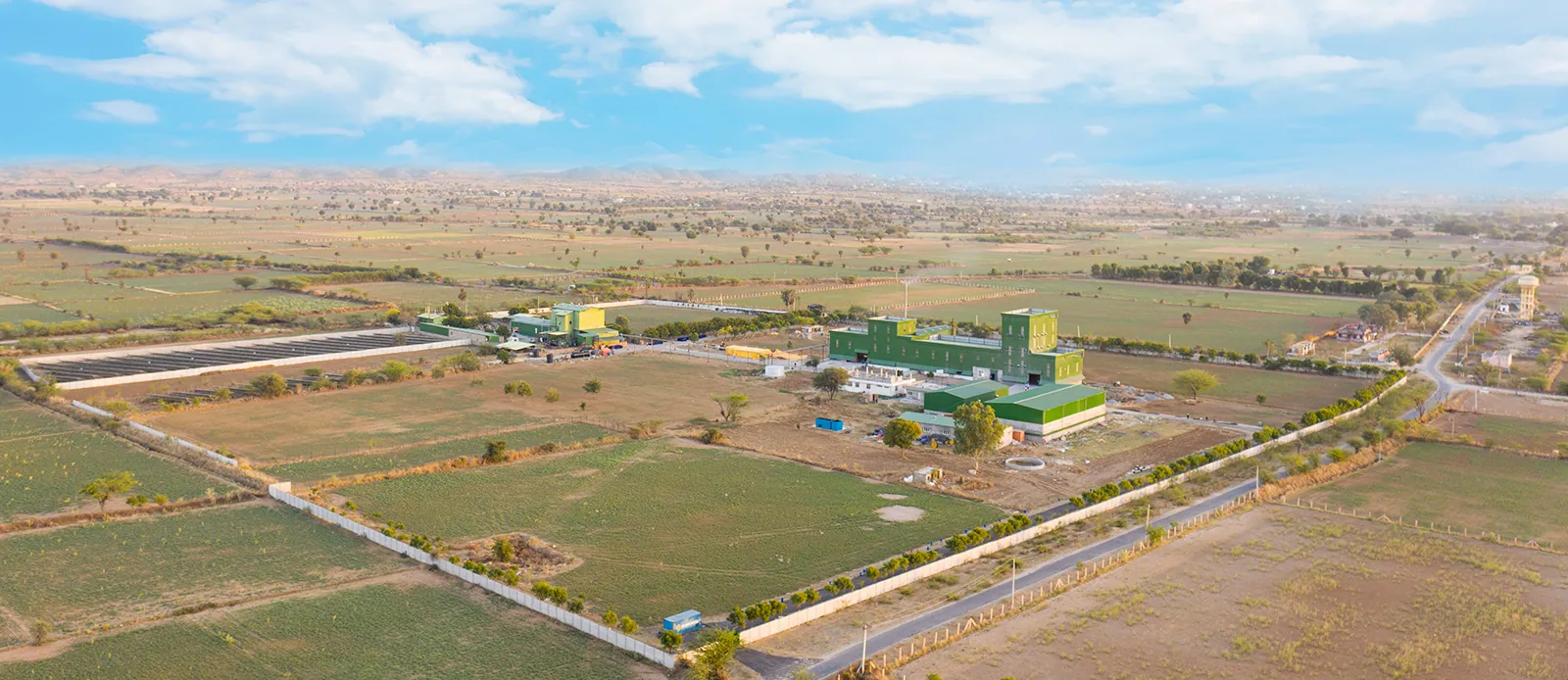
![]() 16-Apr-2024
16-Apr-2024
Exploring the Role of Regulation in the Pesticide Industry: Balancing Safety and Effectiveness
In the modern agricultural landscape, pesticides supplied by the top Pesticide exporters from India, play an essential part in protecting crops from diseases and pests, ensuring that there is sufficient food for everyone, and providing a means of subsistence for millions of farmers all over the world. On the other hand, despite the evident advantages they offer, pesticides also present the possibility of adverse effects on both human health and the environment. By highlighting the crucial importance of regulatory control in the pesticide sector, which aims to strike a delicate balance between safety and efficacy, this paradox highlights the importance of regulatory monitoring.
Importance of Pesticides in Modern Agriculture:
The use of pesticides is essential to modern agriculture since they guarantee the continued productivity and viability of agricultural production all over the world. Pesticides serve a crucial role in modern agriculture. The fact that they can resist weeds, illnesses, and pests that pose a threat to crop health and yield is the primary reason for their significance. When it comes to preserving their crops from harmful insects, fungi, and other pests, farmers would face enormous hurdles in the absence of pesticides. This would result in severe losses in terms of both the quantity and quality of the produce they produce.
Furthermore, pesticides contribute to food security by assisting in the maintenance of stable yields and aiding in the reduction of post-harvest losses that are caused by pest damage. Pesticides assist farmers to produce more food on current arable land by protecting crops throughout the growing season. This allows farmers to satisfy the expanding demands of a growing global population, which is driven by the fact that the global population is growing.
In addition, pesticides play a significant part in the maintenance of livelihoods and the preservation of rural economies by increasing the productivity and profitability of agricultural production. Using pesticides allows farmers to produce higher revenues, reinvest in their operations, and contribute to the economic growth and development of their communities. This is accomplished by reducing the amount of yield losses that occur and improving the quality of the crops.
It is vital to use pesticides in a responsible manner and under regulatory requirements to minimise hazards to human health and the environment. That is even though pesticides are important. Pesticides have the potential to continue to be essential tools in sustainable agriculture if they are managed properly and integrated pest management strategies are implemented. This will ensure that future generations will have access to food, economic prosperity, and environmental sustainability.
Regulations in the Pesticide Industry in India:
Regulations governing the manufacture, sale, and use of pesticides vary widely across different countries and regions. In India, the Pesticide industry in India operates within a regulatory framework established by various government bodies, including the Central Insecticides Board and Registration Committee (CIBRC), the Ministry of Agriculture and Farmers Welfare, and the Food Safety and Standards Authority of India (FSSAI).
- One of the primary objectives of pesticide regulation is to ensure that products entering the market are safe for use and pose minimal risks to human health and the environment. This involves rigorous testing and evaluation of pesticide formulations manufactured by one of the most distinguished Pesticide formulation companies in Indiato assess their toxicity, persistence, and potential for bioaccumulation. Manufacturers are required to submit detailed data on the composition and properties of their products, as well as results from toxicity studies conducted according to prescribed guidelines.
- Furthermore, regulatory agencies conduct field trials to evaluate the efficacy of pesticides under real-world conditions, ensuring that they deliver the intended pest control benefits without causing undue harm to non-target organisms or ecosystems. These trials help determine appropriate dosage rates, application methods, and safety precautions for farmers and applicators.
- In addition to product registration and testing requirements, pesticide regulations also govern aspects such as labelling, packaging, storage, transportation, and disposal. Labels must provide clear and accurate information on product ingredients, usage instructions, safety precautions, and first-aid measures in case of exposure. Proper packaging and storage practices help prevent contamination and ensure product integrity throughout its shelf life.
- Moreover, regulatory agencies monitor pesticide residues in food and the environment through routine sampling and analysis programs. Maximum residue limits (MRLs) are established to ensure that residues remaining on treated crops are within safe levels for human consumption. Violations of MRLs can result in product recalls, fines, or other enforcement actions against manufacturers and Pesticide suppliers in India
- Despite the stringent regulatory requirements, challenges remain in effectively enforcing compliance and addressing emerging issues in the pesticide industry. One such challenge is the proliferation of counterfeit or substandard pesticides, which may contain unauthorized ingredients or fail to meet quality standards. These illicit products not only pose risks to users but also undermine the reputation and credibility of legitimate manufacturers.
Another area of concern is the development of pesticide resistance in target pests, rendering certain products ineffective over time. Regulatory agencies work closely with industry stakeholders to promote integrated pest management (IPM) strategies that emphasize the judicious use of pesticides in combination with other control methods, such as crop rotation, biological control, and cultural practices.
Furthermore, there is growing recognition of the need for sustainable and environmentally friendly alternatives to conventional pesticides. Biopesticides, derived from natural sources such as plants, microbes, and minerals, offer promising solutions for pest management with reduced ecological impacts. Regulatory support for research and development in this area can accelerate the adoption of bio-based alternatives and promote the transition towards more sustainable agricultural practices.
Closing Thoughts:
The role of regulation in the pesticide industry is multifaceted, encompassing safety assurance, efficacy evaluation, quality control, and environmental stewardship. By enforcing stringent standards and promoting responsible pesticide use, regulatory agencies help safeguard public health, protect the environment, and sustainably support agricultural productivity. However, ongoing collaboration and innovation are essential to address evolving challenges and advance the development of safer, more sustainable pest management solutions.
If you require high-quality pesticide formulations from trusted as well as top-ranked Pesticide formulation companies in India, look no further than InTech. As one of the top pesticide manufacturers in India, we are committed to delivering products that meet the highest regulatory standards while providing effective pest control solutions for your agricultural needs. Contact us today to learn more about our extensive range of formulations and how they can benefit your crops.
